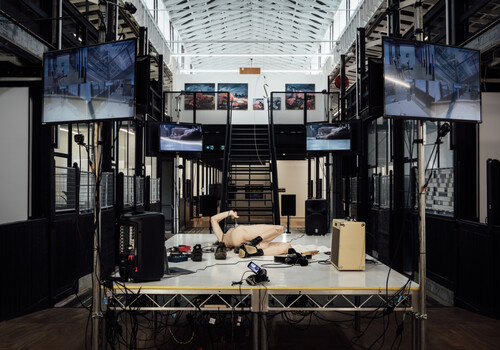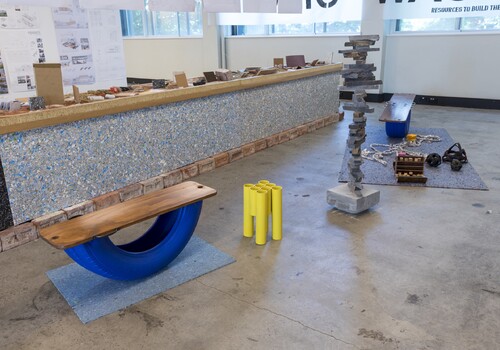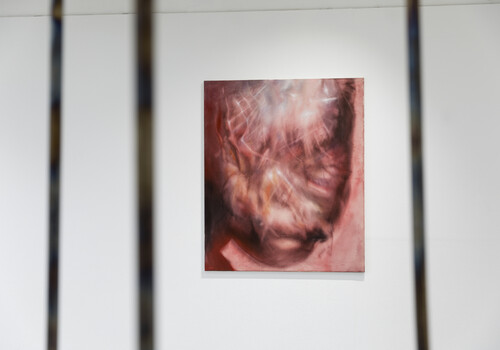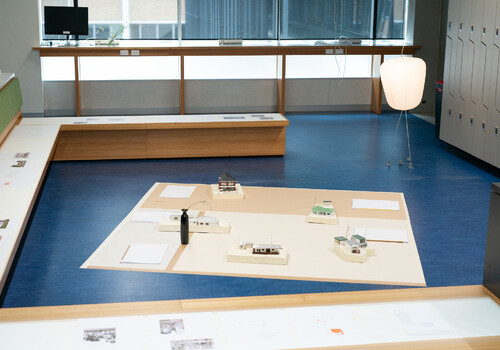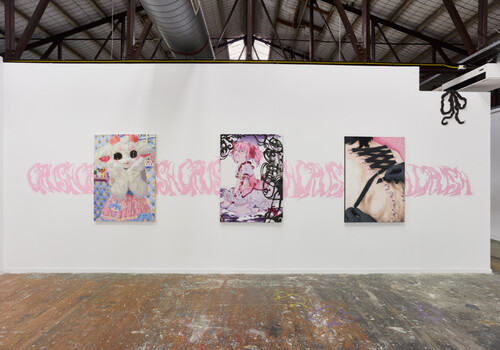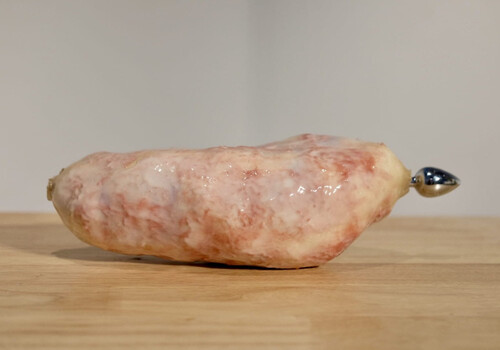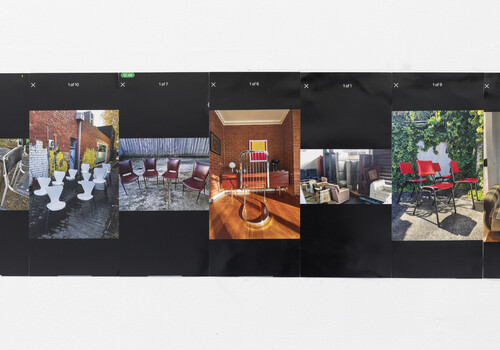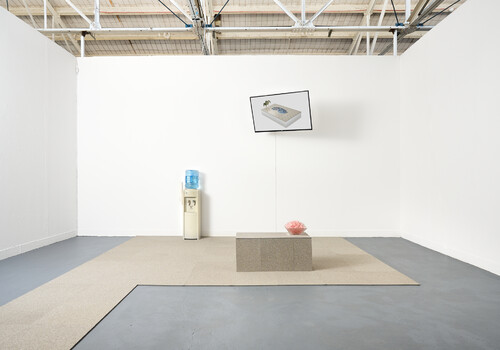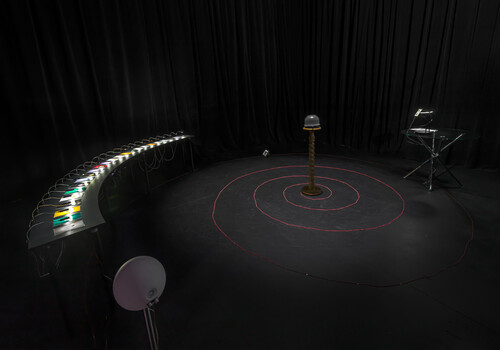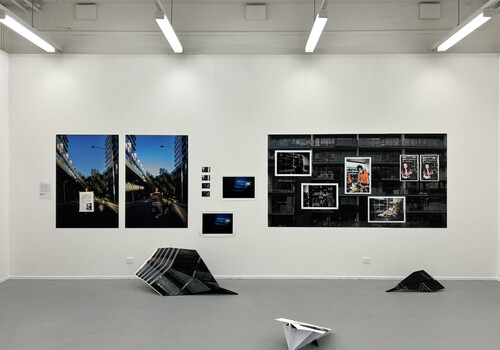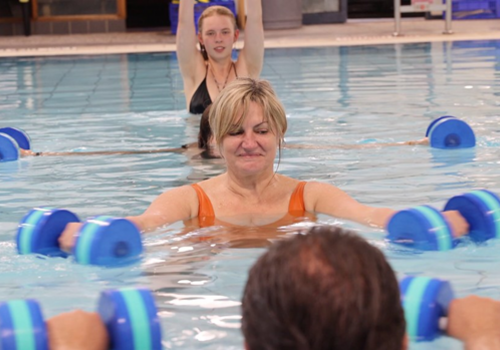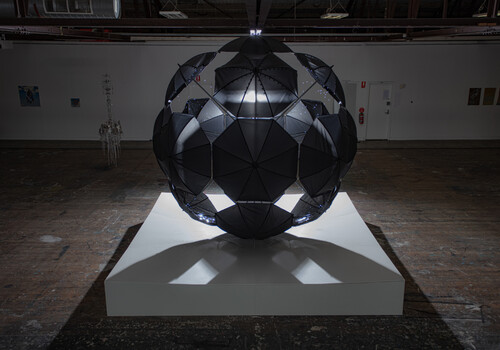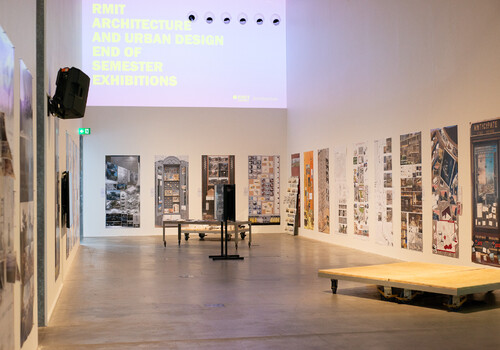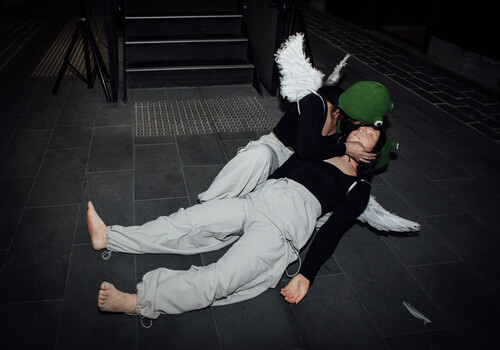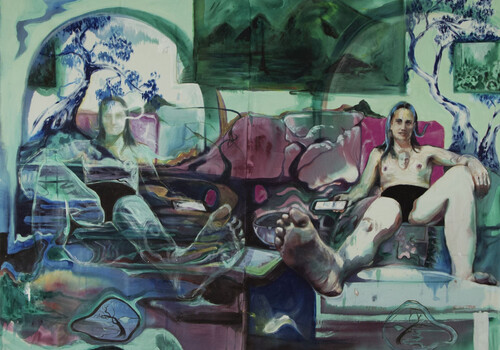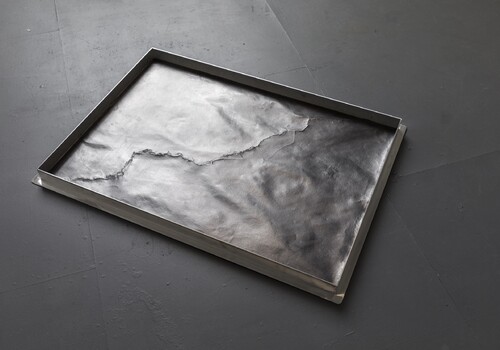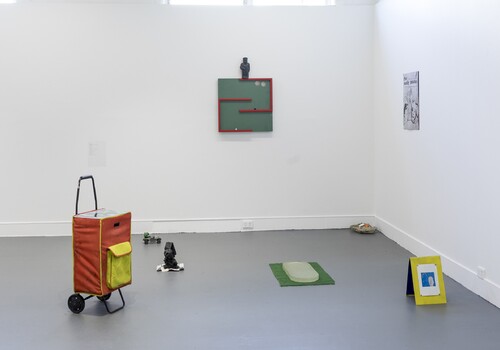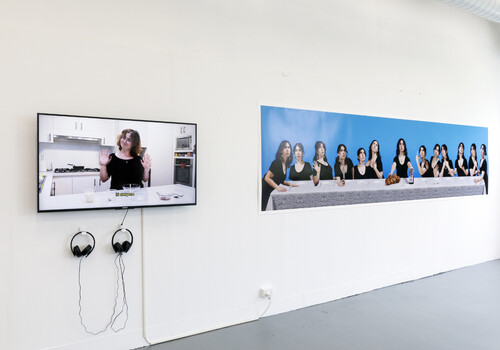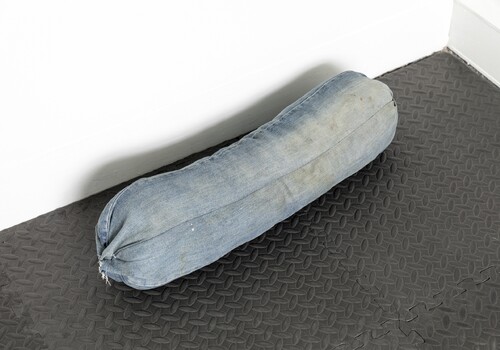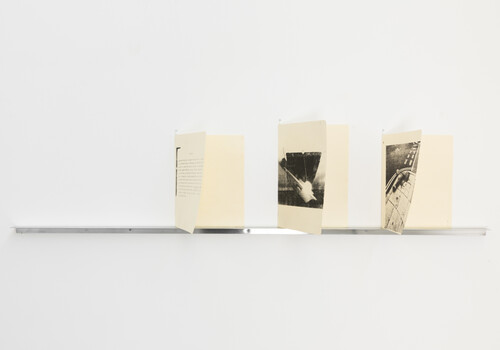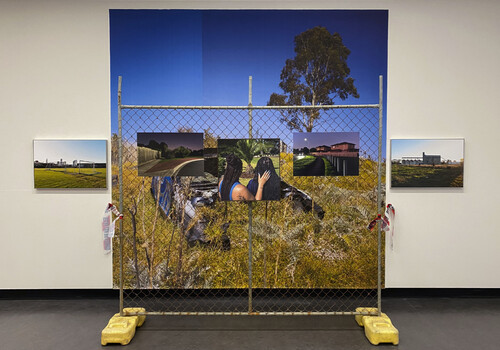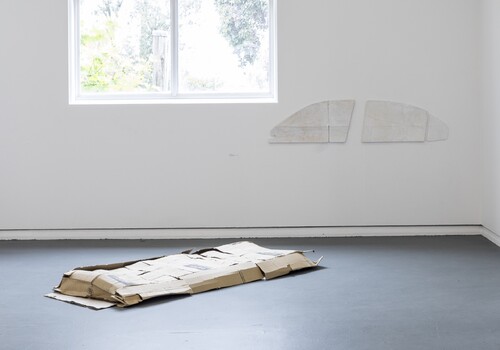Bachelor of Fine Art, MADA
By Loqui Paatsch
Through the window, I have a fine view of the empty oval across the road. Underneath, a pair of white flat shapes sits blankly, inert and covered in white paint, alongside a battered oblong in brown cardboard, shaped like a dented and deflated mattress. Working against the prim minimalism of its own flat planes, Rough, abstractions, a work by Brayden Dopper, transforms cardboard into a bewilderingly textured surface. Cracked, dimpled and variegated, the two white triangular pieces appear encrusted, like matte pottery pieces used to test a lumpy glaze.
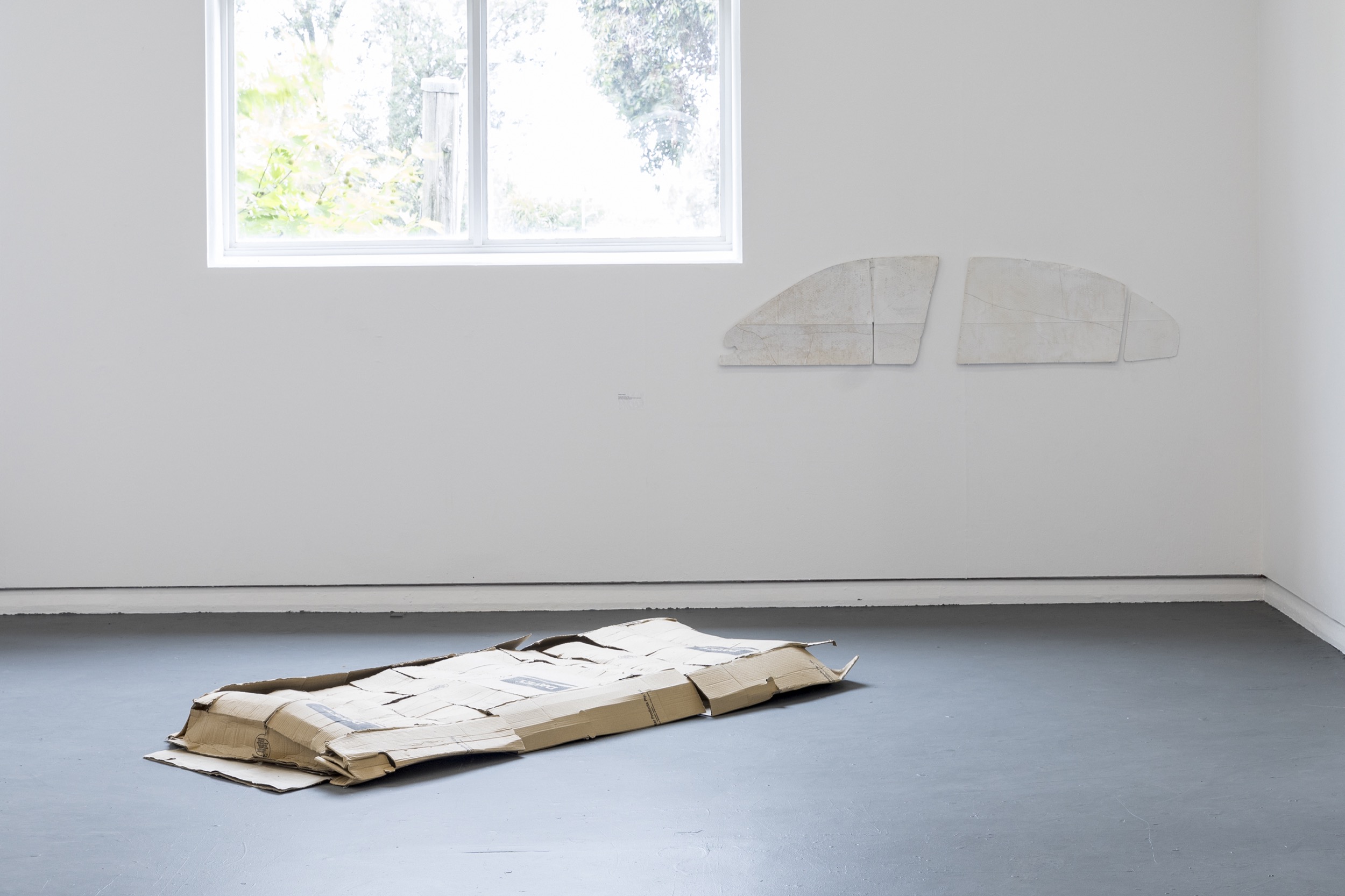
Across the room, Dopper’s Contact Series is, well, contactable: tangible and bearing traces of touch and friction. On a grey rubber floor, of the type found in the most depressing sort of $10 per week gym, there’s an assortment of sporting equipment in worn denim, stuffed and inflated into new forms. Hanging in the centre is a grey punching bag constructed from a discarded pair of jeans, a pugilist’s fashion crisis – “I could have been a contender!” Dopper tears clothing away from the body, forming garments into sporting soft sculptures – a pale blue football, a lumpen yoga bolster. It’s a tongue in cheek gambit: self improvement made casual, the body stripped bare, work garments put to work for corporeal perfection.
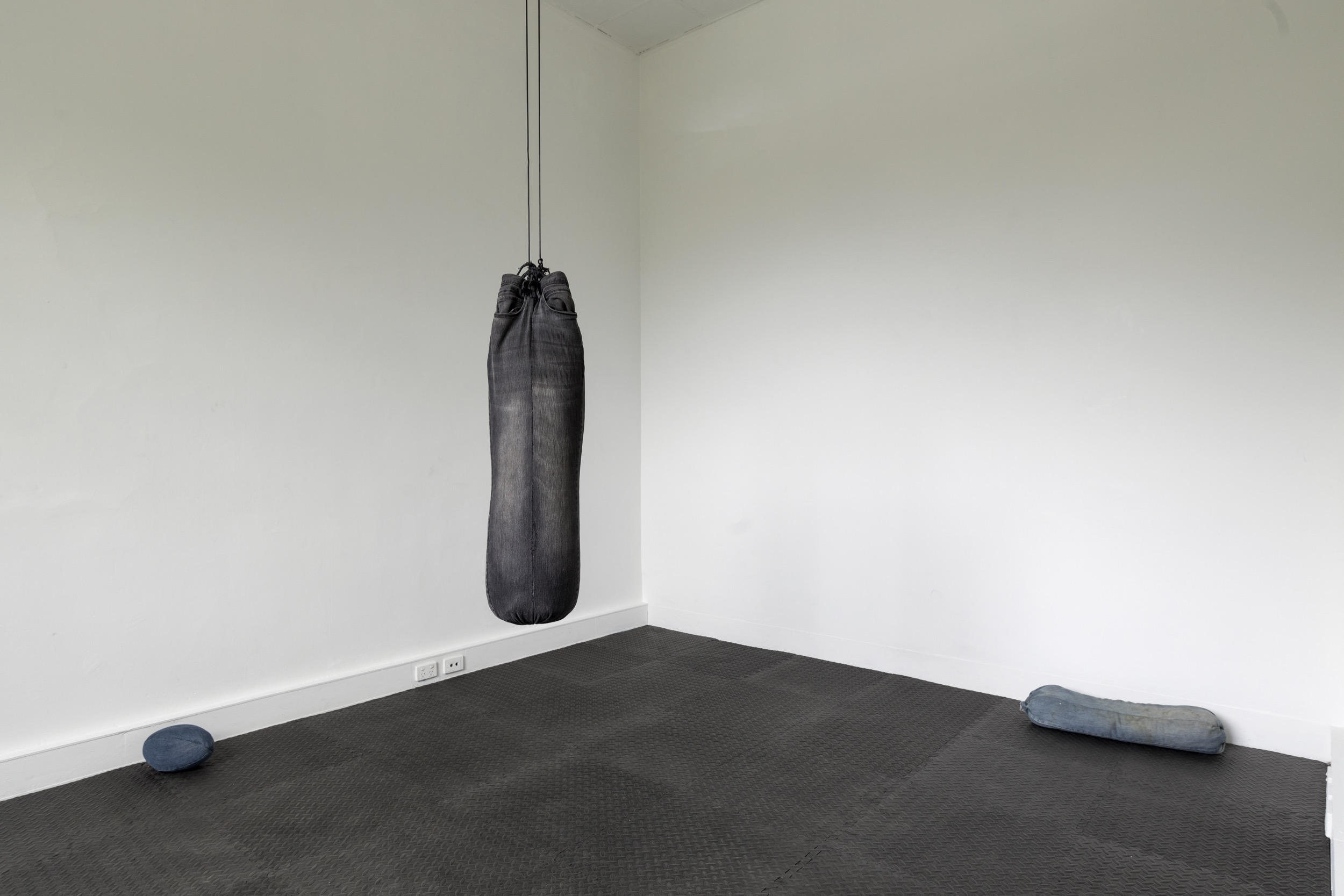
In contrast to Dopper’s flexing of form, Charlotte Window’s delicate series of drypoint etchings are contained and particular. Let me find a reference is a neat set of six prints arrayed across a shelf, forcing one to peer down from above. Window presents fragments of an infinite scroll of gridded images, screenshots of some algorithmically generated explore page or Pinterest moodboard, hazily scratched and impressed unevenly onto warm toned paper.
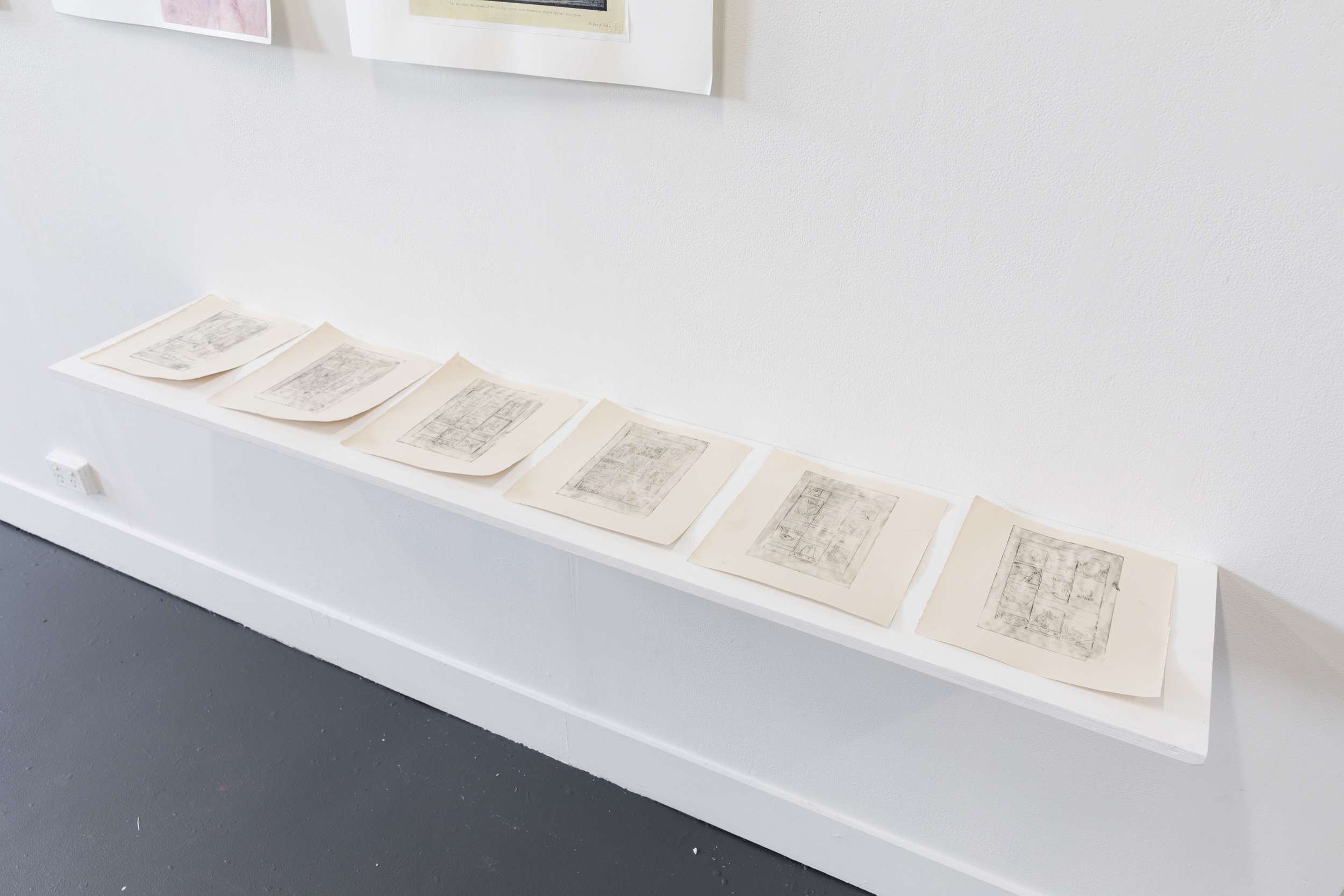
Within these grids and cells, everything is cute, imperfectly replicated and faded: a butterfly, a wine glass, the vacant mute face of Hello Kitty, flowers, and stars. It’s a directory of sorts, a set of references for Window that become the substance of the work itself, reiterated and fixed not behind the glass of a screen, but to a metal plate pressed to paper. Within the ripples and lines of grey and black ink, surrounded by thick margins, these rectangles assume the qualities of a tablet, portentous and ready to be decoded. I find a sympathy of some kind between these works, a correspondence uniting Dopper’s denim gymnasium and Window’s flattened wunderkammer: a concern with surface, ideals, aspiration – to reanimate clothing and document traces of wear, or curate an online aesthetic vision board and transfigure it through a printing press, scuffing pristine LCD displays and tearing through seams. Pushing through screens, plates, fabric, they strain the capacity of surface to disclose, or to reveal.
Loqui is a writer from Melbourne.
